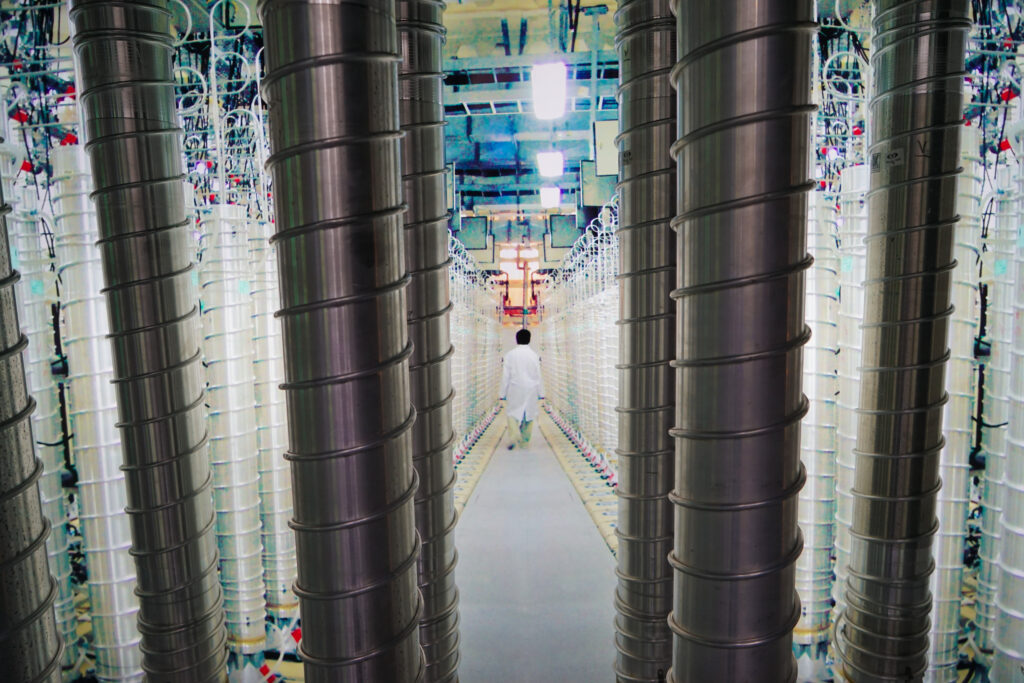UPDATES
Israel offers positive water policy example to the region – the Palestinians, sadly, offer the opposite
March 10, 2013 | Or Avi Guy

Or Avi-Guy
When one enters “Israel scenery” into a Google image search, many images of the desert come up. When non-Israelis are asked to describe what they think Israel must look like, the common answer includes sand dunes, rocky desolate hills dotted with palm trees and camels – always camels. This is unsurprising, since geographically two-thirds of the country is indeed desert.
Yet the Google search image results also reveal something incredible about the Israeli desert – it blooms, in the words of David Ben-Gurion, Israel’s first Prime Minister and the visionary of its successful water management policy.
Located in one of the driest regions in the world, water is a constant concern for Israel, and such concerns have occasionally played a part in past wars with its neighbours. It has also been repeatedly claimed that future clashes in the region might also revolve around access to water.
Yet through resource management, innovation and planning, the Israeli water authorities have effectively alleviated many of these concerns, and have now beaten the intense drought which has gripped the country for several years. And this has been achieved not simply through a change in the weather, but through changes in policy and the building of infrastructure, which Israel’s authorities assert, have essentially rendered the country drought proof – as outlined in a new feature article published in the Times of Israel. Now, the Israeli example stands ready to help others in the region to do the same. Unfortunately, not everyone is ready to take advantage of this opportunity. In particular, the Palestinian leadership unfortunately and short-sightedly seems more interested in blaming Israel for their water problems than overcoming them with Israel’s help.
How did Israel deal with the water scarcity? The first water project, the National Water Carrier, was in the planning even before Israel was established, and its construction was in full swing since the country’s early days. It’s a system of canals, pipes and tunnels delivering water to the more barren parts of the country from the Sea of Galilee (the Kinneret, in Hebrew).
Since then, as demand rose, new solutions were found: 80% of purified sewage water in Israel is recycled and used in agriculture and industry- the highest percentage in the OECD, by a very large margin. Water-efficient technologies, such as drip irrigation, were developed to allow for agriculture to thrive in the dry desert regions. These days the main national water project is desalination, with three desalination plants already operational, and another two in advanced construction stages. By the end of the year, 50% of water consumed in Israel will be artificially manufactured water, either in desalination plants, or purified sewage and brackish water.
The Times of Israel article further notes that, thanks to strong conservation measures, Israel now actually consumes somewhat less total water overall than it did a decade ago, despite strong population and economic growth. Furthermore, Israel has much lower per capita fresh water use (that is not including desalination or wastewater recycling) than virtually all its neighbours, excepting the Palestinians – in 2006 Israel averaged 152 cubic metres as a multiyear average, but this has since fallen somewhat further. At that time, Jordan averaged 949, Syria 861, Egypt 732 and Jordan 172 cu. meters per capita per annum. The West Bank averages around 140.
Israel’s water solutions can be implemented across the region, to deal with similar concerns in Jordan, Gaza and the West Bank.
A new study of regional water problem by Jay Famiglietti of the University of California, Irvine, described in National Geographic, concluded that:
In the Middle East, some countries, notably Israel, are pioneers of efficiency, while others are less advanced. Much of the technology is in place. It just needs to be disseminated and embraced across the entire region.
Cooperation and shared knowledge, expertise and technology can address the region’s water concerns in a way that will not only improve the quality of life for millions in the region and enable greater and more sustainable economic and demographic growth, but also resolve one of the standing issues in the Israeli-Palestinian negotiations.
Indeed, cooperation on water issues with Jordan provides a positive example. Israel supplies Jordan with 70 million cubic meters of water annually, in line with the formal agreements between the countries. The agreements also institutionalised issues of drilling rights and the two countries work efficiently together, with mutual respect and with an understanding of the mutual interest.
Dealing and cooperating with the Palestinians on water issues is, unfortunately, a different story altogether. Israel is obliged by the Oslo Accords to supply the Palestinian Authority with 31 million cubic meters of water annually, but has actually supplied considerably more than this in most years.
Yet unlike Jordan, when efforts are made to develop infrastructure to increase water availability (water delivery, desalination in Aqaba, more efficient use of brackish water), the PA does very little to develop its water infrastructure, and its over-drilling and illegal wells run the risk of permanently damaging the aquifers they access. While there are established channels of communication and cooperation between Israel and the PA, as agreed upon in the Oslo Accords, the head of the PA’s water authority (PWA), Dr. Shaddad Attili, apparently prefers to level accusations against Israel – about alleged over-charging for water, demolition of illegal wells and refusing to approve new drillings – rather then developing an independent and viable water infrastructure with the help of Israeli water experts as provided for in the agreements
Obviously, it is very counterproductive to simply blame Israel for Palestinian water problems and refuse to cooperate with it on water issues – especially when Israel’s water solutions can very well be the answer to dealing with water scarcity on a regional level. This only serves to perpetuate the water shortage in drought-stricken territories. So why are the Palestinians turning their backs on fairly obvious solutions to their water worries at the expense of their own population, economy, industry and agriculture interests? Commentators have suggested that it is simply in line with their overall strategy of rejecting cooperation and negotiations on all issues in an attempt to promote unilateral statehood.
The dispute over water, as far as the PA is concerned, does not seem to be a shared regional challenge, to be solved through negotiation, compromise and cooperation. It appears they don’t see water scarcity as a problem which ought to be solved, as Israel has, but rather as yet another politicised issue on the long list of alleged evils and wrongdoings to be raised against Israel on the diplomatic international stage.
The facts are, however, that Israel is keeping all of its water-related obligations under the Oslo Accords, including cooperation in a Joint Water Committee (JWC), which was brought to a halt by the Palestinians’ lack of cooperation. The Palestinian policy, thus, leads to grave and disappointing results – as Palestinian waste water threatens to contaminate precious underground water resources in the West Bank, harming both Israelis and the Palestinians themselves. This is despite the flow of international aid funds available to treat and reuse such waste water, and Israeli offers to help finance Palestinian waste water treatment projects and build a joint desalination plant to accommodate Palestinian water needs.
The Palestinian leadership seems to be stubbornly perpetuating the water problems in the Palestinian territories while refusing to cooperate with Israel, which holds the key to their solution. Needless to say, this is not what a mature and pragmatic leadership, which aspires to meet the requirements for statehood, should be doing.
Tags: Israel





